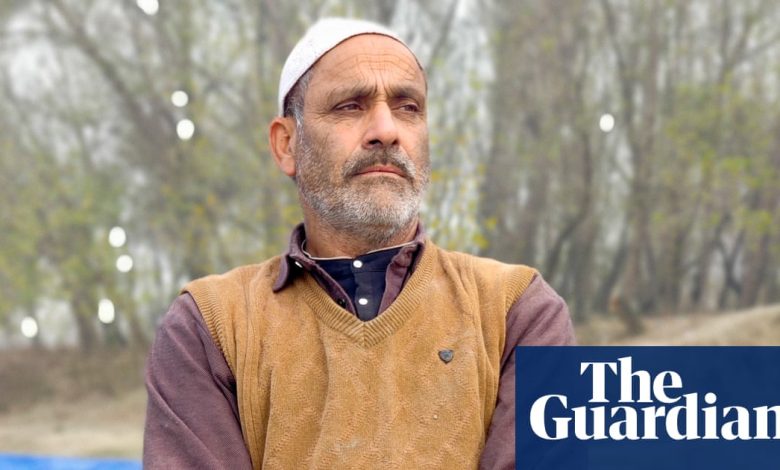A fisher of people: the Kashmiri man who has saved hundreds from drowning | Kashmir

Abdul Salam Dar has been fishing for most of his life. From Lelhar Kakapora, a village along the Jhelum River in KashmirDar, 69, sells his catch in local markets.
He is also a manhunter. Over the past 30 years, he has rescued hundreds of people and pulled 47 corpses from rivers in the valley.
“I remember every rescue and every body taken out. I remember their numbers and even their faces. Many of them had slipped into the river, but most had attempted suicide,” says Dar.
Before he was drawn into the job of rescuing people and retrieving bodies, Darr says he was called to retrieve utensils, engines, boats and other lost items in the river. Then, one day, he saw a man drowning.
“It had a big impact on my life. Everyone tried to save him, but no one succeeded. He was looking for help but ended up drowning in front of me,” he recalled.
Popularly known as Dungal (“The Diver”), Dar is revered in the region. Whenever official rescue teams have trouble finding a corpse, they call Dar.
Dar recovered bodies in Sangam, Anantnag, Bijbehara, Pampore, Srinagar and other parts of Kashmir. He recalls an incident in Aharbal when the police did not allow him to retrieve the body of a drowned woman.
“One cop called me a ‘weak old man’ and said I couldn’t do anything. Eventually I convinced them and they let me do it,” he says. He quickly managed to get the body out.
Dar insists on the need for men and women to be saved differently. While rescuing or removing a man’s body, he usually holds it tightly to his chest, but when it is a woman, he gently holds the strands of her hair, keeping a respectful distance between himself and the woman’s body.
Unlike most lifeguards who take precautions before diving into the water, Dar is known for doing his job without any safety gear. It has its own unique way of working in the water.
“After being in deep water, by the will of Allah, my way of working is developing well. I only use a rope and a long log. I feel good after saving a life or helping a family retrieve the dead body of their loved one,” he says.
On many occasions Dar was called to Jammu and other remote parts of the region to help. Once, recalls Dar, the body of a girl who had drowned in Sopore could not be found for eight days. Dar found her 40 miles away in Uri, near the Pakistan border.
after the promotion of the newsletter
Dar also recalls an incident where three boys drowned. Local police and rescuers struggle to find the bodies, so the navy is called in. Dar is eventually summoned.
“I got two of the bodies in just 10 minutes,” he says, adding that the officials asked him to guide them so they could remove the rest themselves because they were afraid people might think they were incompetent. “I directed them and another body was fished out,” he recalled.
During the The extreme floods in Kashmir in 2014Dar has been the man at the forefront of rescuing people in Kashmir and says he has rescued more than 100.
Many people as well as the government have tried to reward him for his work but he is not impressed. Once, after saving someone, their family gave him 6,000 rupees (about £60) as a gift, which he returned.
“Whenever I rescue or retrieve a body, people offer me money or officials give me rewards saying ‘you’ve earned it.’ But for me accepting these things is like selling the souls of dead bodies and I can’t do that,” says Dar.
International helplines can be found at friends.org. In the United Kingdom and Ireland, Samaritans you can contact toll free phone 116 123 or email jo@samaritans.org or jo@samaritans.ie. In the US, you can call or text at National Suicide Prevention Lifeline on 988, chat on 988lifeline.orgor text START on 741741 to connect with a crisis counselor. In Australia, the crisis support service Lifeline is 13 11 14.

